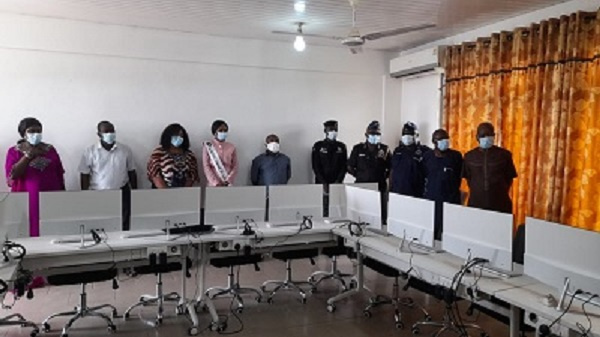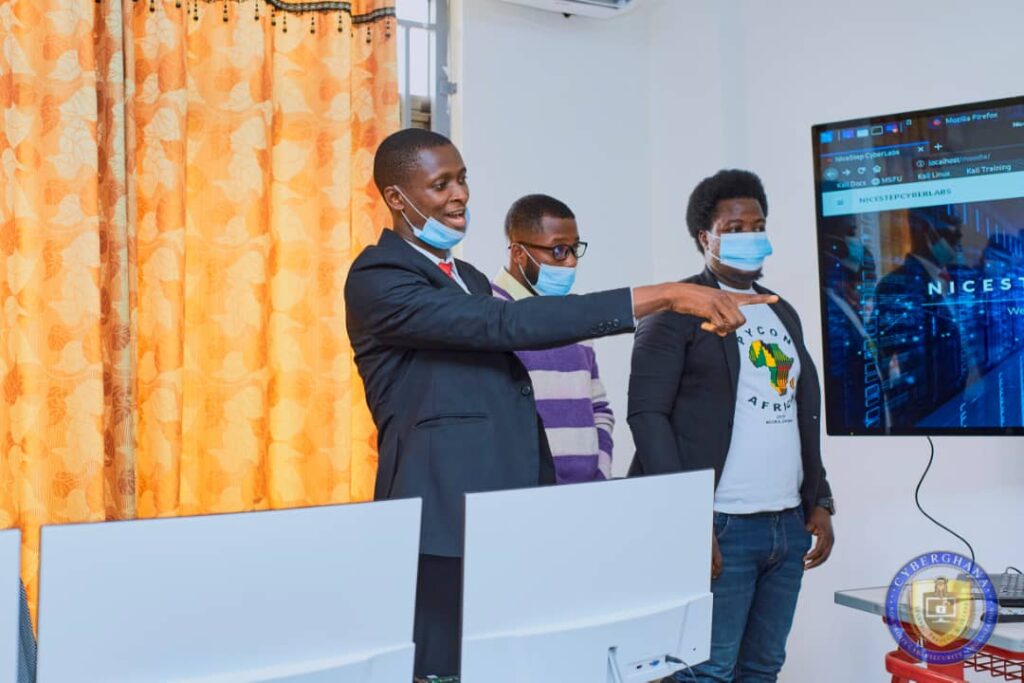Local non-profit organisation, CyberGhana, has set up five fully-equipped cybersecurity engineering centres in 5 tertiary educational institutions across the country.
The centres seek to build a cybersecurity and cyber engineering workforce across the country.
The new centres in Cape Coast Technical University, Sunyani Technical University, Koforidua Technical University, Bolgatanga Technical University and Ghana Baptist University College will serve as centres for the training of students and professionals from various fields to acquaint themselves with relevant skills to counter cyber threats.
Ghana Baptist University College, on April 9, 2021, became the fifth tertiary educational institution in Ghana to benefit from the initiative which will enable the institution to offer short courses on cybersecurity as well as BSc and MSc in cyber programmes.
The project is an extension of the National Initiative for Cyber Engineering, Science and Technology Educational Programme (NICESTEP CyberLabs) cybersecurity project, which is jointly funded by CyberGhana, the Lloyd’s Register Foundation, UK and the Royal Academy of Engineering.
The Executive Director of CyberGhana and Project Manager of NICESTEP Cyber Labs, Sam Aduafo Owusu, said, the project is intended to provide consultancy services on cybersecurity and forensics as well as hands-on training for interested persons to pioneer artificial knowledge studies in the nation.
Against the backdrop of the nation losing an estimated 6.8 million dollars through cyber fraud as well as $2.7 million to intrusion and stealing in 2019, Mr Owusu said the project includes a series of training workshops for members of the military, law enforcement, and other security agencies to build capacity to combat the threat.
According to Mr Owusu, aside from crime prevention, cybersecurity and cyber engineering training and education also provide an avenue for employment, which in itself is a way of preventing crime.
He said the alarming rate of cybercrime (locally referred to as sakawa in Ghana) can largely be attributed to the high unemployment rate among the young people in Ghana and the subregion, a situation that can be reversed through projects such as NICESTEP CyberLabs.
“Globally, there are over three million unfilled cybersecurity job openings. We have several students graduating every year who have no jobs available; so we want to train students to have hands-on skills to secure some of these available vacancies, while also protecting our cyberspaces,” he added.
CyberGhana’s NICESTEP project falls in line with the United Nation’s Sustainable Development Goals (SDGs) 1, 4, 5, 8, and 9. The project has also been listed among the top 21 “Engineering X Projects,” which seeks to promote teaching and learning of cybersecurity engineering in Ghana to help bridge the gap between engineering in academia and real issues that exist in the industry.
Each facility is supported by web and cloud-based resources required for teaching and learning cyber engineering. The web and cloud-based resources have the latest security systems and software packages to enable a greater number of people to access and work remotely.








































